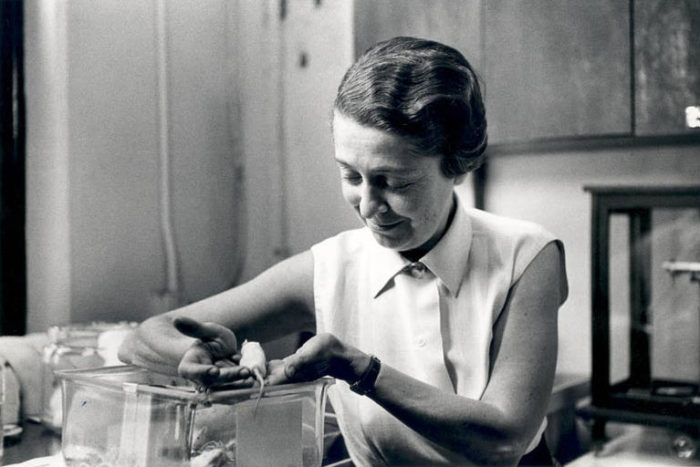Nobel Prize Winners
WashU Medicine has a long tradition of pursuing novel approaches and expanding the bounds of what is known.
This tradition has roots in the vision of university board member Robert S. Brookings, who in 1909 was determined to transform the medical school into a model for American medical education and research. Among the first recruits to this “modern medical school” was Joseph Erlanger, who Brookings appointed head of the physiology department in 1910. Three decades later, Erlanger won a Nobel prize.
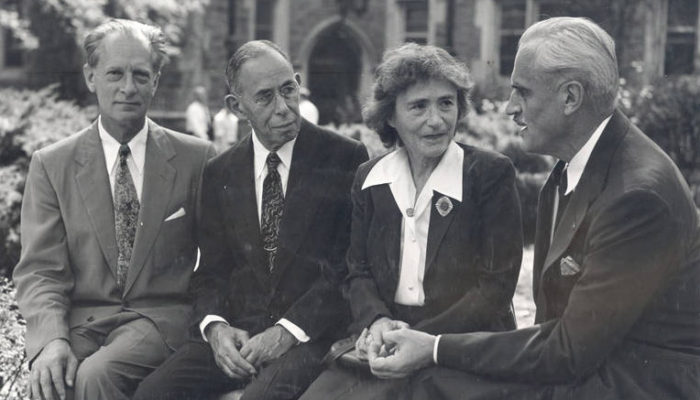
To date, 19 Nobel laureates have ties to WashU Medicine, and the tradition continues. With an ever-growing infrastructure that supports collaboration, innovation and entrepreneurship, we equip our outstanding faculty, students and trainees with the resources to pursue discoveries that may shape science and medicine for generations to come.
1927: Arthur H. Compton (1892–1962)
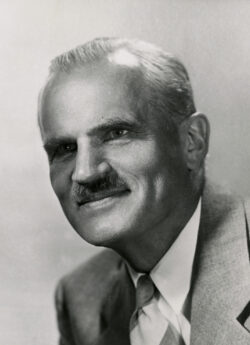
Physics
“For his discovery of the effect named after him”
WashU Medicine affiliations:
Professor of Physics (1920–23); Chancellor (1945–53); Distinguished Service Professor of Natural Philosophy (1954–61)
1943: Edward A. Doisy (1893–1986)
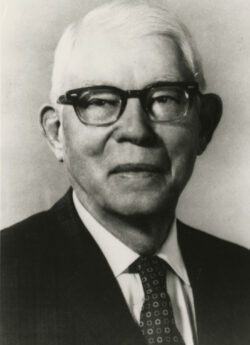
Physiology or Medicine
“For his discovery of the chemical nature of vitamin K”
WashU Medicine affiliations:
Instructor (1919–20), Associate (1920–22) and Associate Professor (1922–23) of Biological Chemistry
1944: Joseph Erlanger (1874–1965)
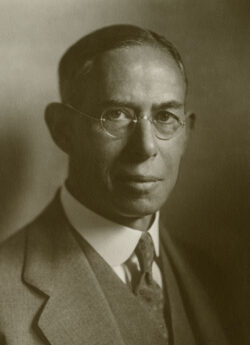
Physiology or Medicine
“For … discoveries relating to the highly differentiated functions of single nerve fibres”
WashU Medicine affiliation:
Professor of Physiology (1910–46)
1944: Herbert S. Gasser (1888–1963)
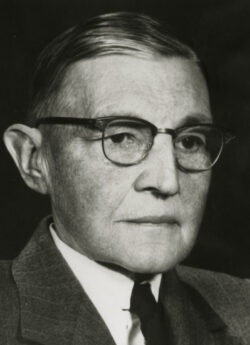
Physiology or Medicine
“For … discoveries relating to the highly differentiated functions of single nerve fibres”
WashU Medicine affiliations:
Instructor (1916–18), Associate (1918–20) and Associate Professor of Physiology (1920–21); Professor of Pharmacology (1921–31)
1947: Carl F. Cori (1896–1984)
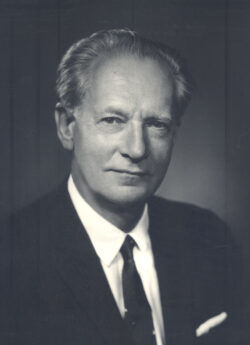
Physiology or Medicine
“For … discovery of the course of the catalytic conversion of glycogen”
WashU Medicine affiliations:
Professor of Pharmacology (1931–46); Professor of Biological Chemistry (1942–66)
1947: Gerty T. Cori (1896–1957)
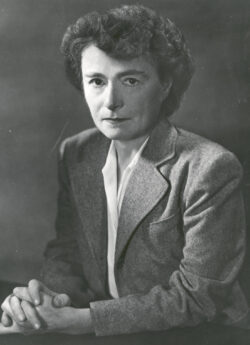
Physiology or Medicine
“For … discovery of the course of the catalytic conversion of glycogen”
WashU Medicine affiliations:
Fellow and Research Associate in Pharmacology (1931–44); Research Associate in Biological Chemistry (1943–44); Associate Professor of Pharmacology and Biological Chemistry (1944–47); Professor of Biological Chemistry (1947–57)
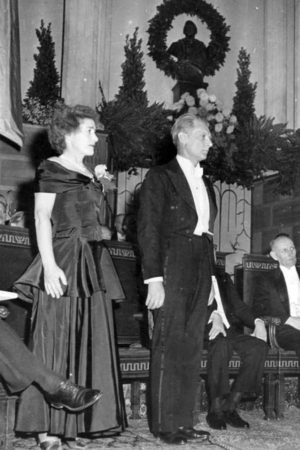
Cori Nobel Prize medals donated to WashU
The two Nobel Prize medals awarded to Carl and Gerty Cori in 1947 for their groundbreaking medical research have been donated to WashU by their son, Thomas Cori, PhD. The medals are on permanent display at the WashU Medicine Bernard Becker Medical Library.
Digital exhibit »
Story and video »
Photo: Carl and Gerty Cori at the Nobel Prize ceremony in 1947. Credit: Bernard Becker Medical Library, WashU Medicine
1959: Arthur Kornberg (1918–2007)
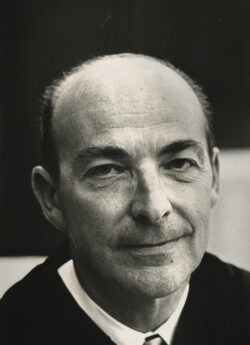
Physiology or Medicine
“For … discovery of the mechanisms in the biological synthesis of ribonucleic acid and deoxiribonucleic acid”
WashU Medicine affiliation:
Professor of Microbiology (1953–59)
1959: Severo Ochoa (1905–93)
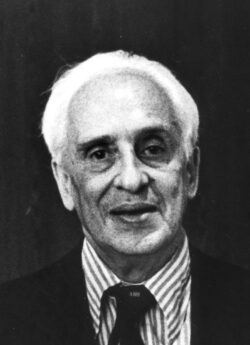
Physiology or Medicine
“For … discovery of the mechanisms in the biological synthesis of ribonucleic acid and deoxiribonucleic acid”
WashU Medicine affiliation:
Instructor and Research Associate in Pharmacology (1941–42)
1969: Alfred Hershey (1908–97)
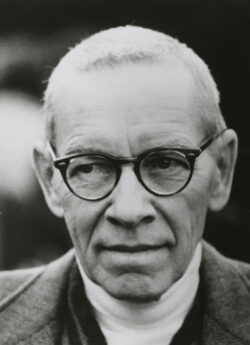
Physiology or Medicine
“For … discoveries concerning the replication mechanism and the genetic structure of viruses”
WashU Medicine affiliations:
Assistant (1934–36), Instructor (1936–39), Assistant Professor (1939–46) and Associate Professor (1946–50) of Bacteriology and Immunology
1971: Earl W. Sutherland, Jr. (1915–74)
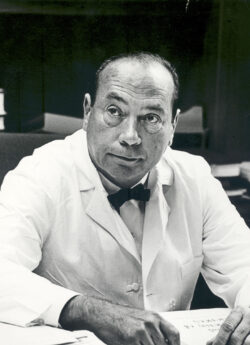
Physiology or Medicine
“For his discoveries concerning the mechanisms of the action of hormones”
WashU Medicine affiliations:
Student Assistant (1940–43) and Instructor (1945–46) in Pharmacology; Instructor (1946–50), Assistant Professor (1950–51) and Associate Professor (1951–53) of Biological Chemistry
1978: Daniel Nathans (1928–99)
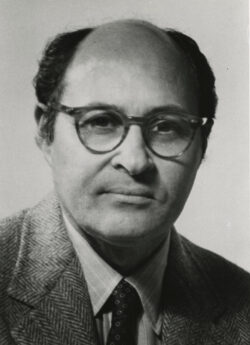
Physiology or Medicine
“For the discovery of restriction enzymes and their application to problems of molecular genetics”
WashU Medicine affiliation:
Graduate (Class of 1954)
1980: Paul Berg (1926)
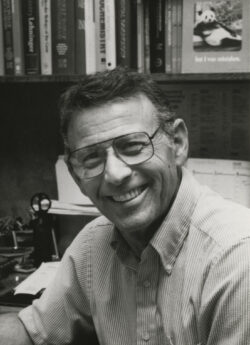
Chemistry
“For his fundamental studies of the biochemistry of nucleic acids, with particular regard to recombinant DNA”
WashU Medicine affiliations:
Research Fellow and Instructor (1954); Assistant Professor (1955–57) and Associate Professor (1957–59) of Microbiology
1986: Stanley Cohen (1922–2020)
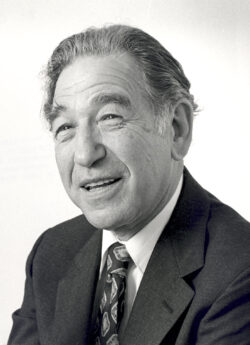
Physiology or Medicine
“For … discoveries of ‘Growth Factors'”
WashU Medicine affiliations:
Research Fellow (1952–53) and Research Associate (1953–59) in Zoology
1986: Rita Levi-Montalcini (1909–2012)
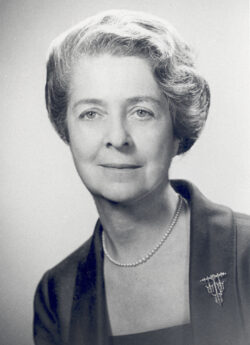
Physiology or Medicine
“For … discoveries of ‘Growth Factors'”
WashU Medicine affiliations:
Research Associate (1947–51), Associate Professor (1951–58) and Professor (1958–77) of Zoology
1992: Edwin G. Krebs (1918–2009)
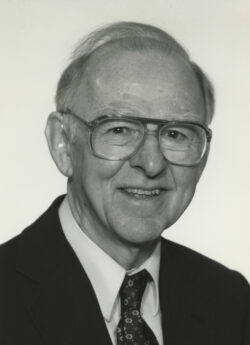
Physiology or Medicine
“For … discoveries concerning reversible protein phosphorylation as a biological regulatory mechanism”
WashU Medicine affiliations:
Graduate (Class of 1943); Intern and Resident at Barnes-Jewish Hospital (1944–46); Research Fellow in Biological Chemistry (1946–48)
1998: Robert F. Furchgott (1916–2009)
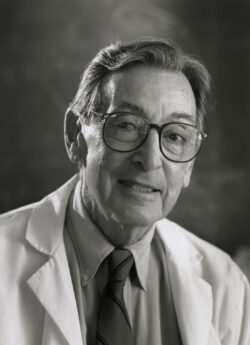
Physiology or Medicine
“For … discoveries concerning nitric oxide as a signalling molecule in the cardiovascular system”
WashU Medicine affiliations:
Assistant Professor (1946–52) and Associate Professor (1952–56) of Pharmacology
2004: Aaron Ciechanover (1947)
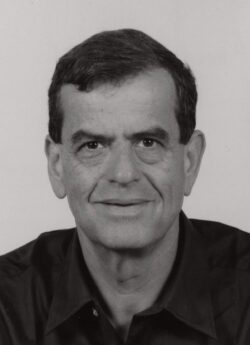
Chemistry
“For the discovery of ubiquitin-mediated protein degradation”
WashU Medicine affiliation:
Visiting Professor of Pediatrics (1987–2001)
2012: Brian K. Kobilka (1955)
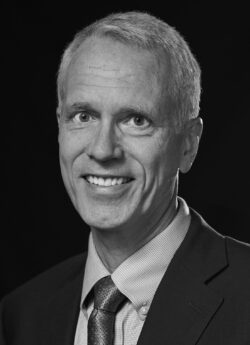
Chemistry
“For studies of G-protein-coupled receptors”
WashU Medicine affiliation:
Medical Resident at Barnes Hospital (1981–84)
2020: Charles M. Rice, PhD (1952)
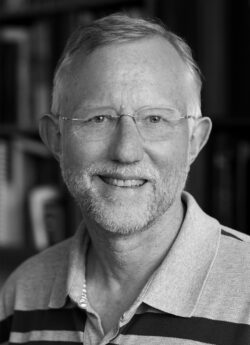
Physiology or Medicine
“For the discovery of Hepatitis C virus”
WashU Medicine affiliation:
Conducted his seminal work while on the faculty from 1986 to 2000
